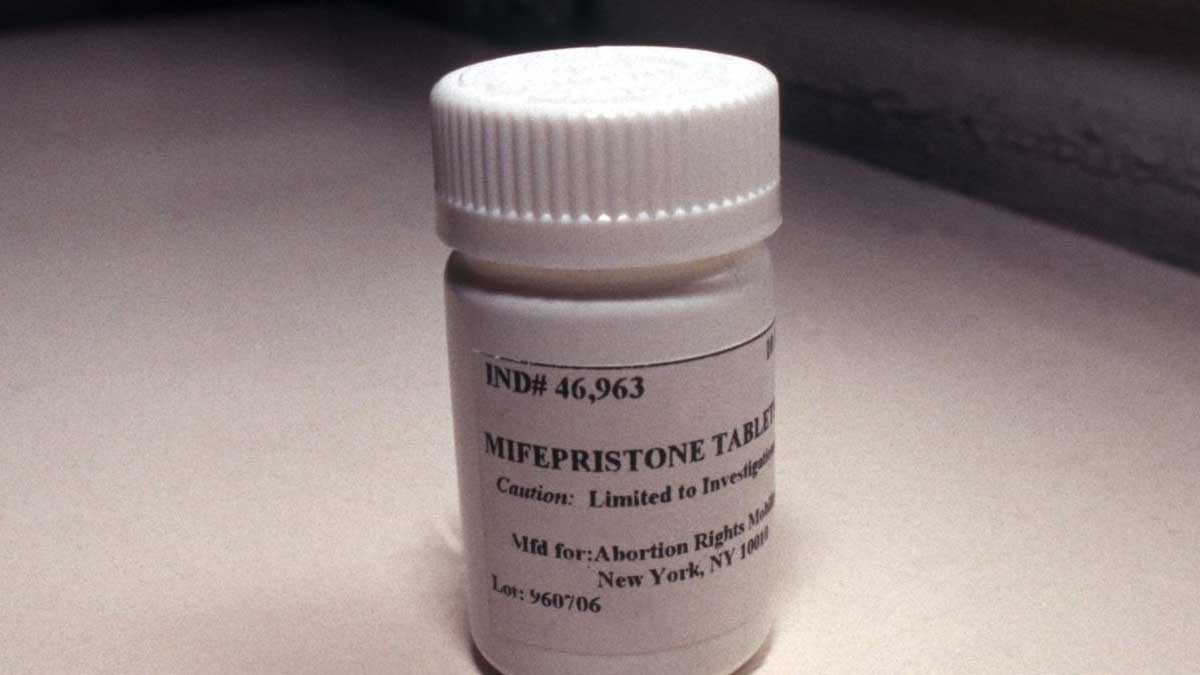- Home
- Billionaires
- Investing Newsletters
- 193CC 1000
- Article Layout 2
- Article Layout 3
- Article Layout 4
- Article Layout 5
- Article Layout 6
- Article Layout 7
- Article Layout 8
- Article Layout 9
- Article Layout 10
- Article Layout 11
- Article Layout 12
- Article Layout 13
- Article Layout 14
- Article Sidebar
- Post Format
- pages
- Archive Layouts
- Post Gallery
- Post Video Background
- Post Review
- Sponsored Post
- Leadership
- Business
- Money
- Small Business
- Innovation
- Shop
Recent Posts
Supreme Court Upholds Mifepristone for Abortion

The Supreme Court has upheld the approval of the abortion drug mifepristone, ruling that challengers seeking to restrict the medication lack the legal standing to sue. This decision maintains the drug’s approvals as medication abortion has become increasingly prevalent since the Supreme Court overturned Roe v. Wade in June 2022.
On Thursday, the Supreme Court ruled that anti-abortion medical groups do not have the standing to sue the Food and Drug Administration (FDA) over the approval of mifepristone. This follows an appeals court ruling that revoked several updates to the drug’s approval, which had made it easier to access. Initially, plaintiffs sought to block the FDA’s approval of mifepristone entirely, but the 5th Circuit Court of Appeals only rolled back updates allowing its availability through telehealth and mail. The Supreme Court’s ruling overturns this, maintaining telehealth access to mifepristone.
Mifepristone is one of two drugs used to terminate a pregnancy. It stops the pregnancy, and a second drug, misoprostol, induces contractions to expel the tissue. It is approved for use up to 10 weeks into a pregnancy, though it is often used until weeks 12 or 13. The drug must be prescribed and is not available over the counter. Historically, it could only be obtained in person from a certified physician or clinic, but more recently, it can be prescribed through telehealth and dispensed via mail-order pharmacies.
In January 2023, the FDA finalized regulations allowing mifepristone to be dispensed at retail pharmacies after being prescribed by a medical provider. Major retailers like CVS and Walgreens agreed to carry mifepristone in states where abortion is legal. However, backlash led Walgreens to reverse its decision in some states, though the pharmacy chains began selling the pills in select states by March.
Lawmakers in many GOP-led states have introduced or considered legislation that could threaten access to medication abortion or penalize those using it. Despite state-level abortion bans, individuals have obtained pills through mail or by traveling to states with fewer restrictions. Wyoming became the first state to enact a ban on abortion pills in March 2023, which was subsequently blocked in court.
The Supreme Court’s ruling is unlikely to end legal challenges to mifepristone. GOP-led states like Missouri, Kansas, and Idaho may attempt to challenge the drug in court, following previous attempts to intervene in the case that reached the Supreme Court. It remains uncertain if these states will succeed in their efforts.
If mifepristone access had been restricted, patients could still have used misoprostol for a medication abortion. Misoprostol, though slightly less effective and with more side effects, can terminate a pregnancy on its own. The FDA has not approved a misoprostol-only regimen, but organizations like the World Health Organization and the American College of Obstetricians and Gynecologists have recommended it as an alternative if mifepristone is unavailable.
In 2023, 63% of all abortions in the U.S. were medication abortions, according to the Guttmacher Institute. Medication abortion is highly safe, with a 99.6% effectiveness rate and only 0.4% resulting in serious complications. The FDA reports 28 deaths associated with mifepristone between September 2000 and June 2022, though it is unclear if mifepristone caused these deaths. A February study in Nature found medication abortion equally safe and effective when prescribed via telehealth.
The FDA first approved medication abortion through mifepristone and misoprostol in 2000. Following the overturning of Roe v. Wade, abortion drugs have gained attention as a means for patients in states with abortion bans to obtain the procedure. New tactics, such as mail-order and mobile clinics, have emerged to broaden access. The FDA’s expansion of mifepristone to retail pharmacies is part of the Biden Administration’s efforts to counteract state bans. The DOJ has clarified that abortion pills can be mailed to states with bans under federal law, though the impact of the Supreme Court’s opinion remains to be seen.
Mifepristone can also treat other medical conditions, including miscarriages and early pregnancy loss, uterine fibroids, and Cushing’s syndrome. Clinical trials are examining its use for various cancers and depression, though the Supreme Court case’s impact on these uses is uncertain.
Recent Posts
Categories
- 193cc Digital Assets2
- 5G1
- Aerospace & Defense46
- AI37
- Arts3
- Banking & Insurance11
- Big Data3
- Billionaires449
- Boats & Planes1
- Business328
- Careers13
- Cars & Bikes76
- CEO Network1
- CFO Network17
- CHRO Network1
- CIO Network1
- Cloud10
- CMO Network18
- Commercial Real Estate7
- Consultant1
- Consumer Tech180
- CxO1
- Cybersecurity68
- Dining1
- Diversity, Equity & Inclusion4
- Education7
- Energy8
- Enterprise Tech29
- Events11
- Fintech1
- Food & Drink2
- Franchises1
- Freelance1
- Future Of Work2
- Games141
- GIG1
- Healthcare78
- Hollywood & Entertainment186
- Houses1
- Innovation42
- Investing2
- Investing Newsletters4
- Leadership65
- Lifestyle11
- Manufacturing1
- Markets20
- Media193
- Mobile phone1
- Money13
- Personal Finance2
- Policy567
- Real Estate1
- Research6
- Retail1
- Retirement1
- Small Business1
- SportsMoney33
- Style & Beauty1
- Success Income1
- Taxes2
- Travel10
- Uncategorized8
- Vices1
- Watches & Jewelry2
- world's billionaires418
Related Articles
Trump Moves $4B Stake in Truth Social Parent, Stock Drops 6%
Donald Trump recently transferred his 57% stake in Trump Media & Technology...
By 193cc Agency CouncilDecember 20, 2024House Rejects Trump-Backed Funding Bill, Shutdown Looms
The U.S. House of Representatives rejected a new government funding bill on...
By 193cc Agency CouncilDecember 20, 2024Trump Named Time’s Person of the Year for Second Time
On Thursday, Time magazine honored Donald Trump as its “Person of the...
By 193cc Agency CouncilDecember 12, 2024Meta Donates $1 Million to Trump’s Inaugural Fund
Meta, the parent company of Facebook and Instagram, has confirmed a $1...
By 193cc Agency CouncilDecember 12, 2024















Leave a comment